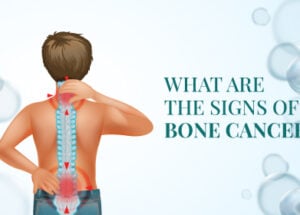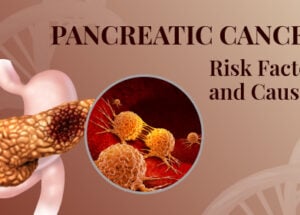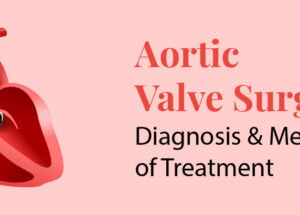Colon cancer – Symptoms and causes
June 8, 2022

Colon cancer is cancer that starts in the colon, while rectal cancer is cancer that begins in the rectum. Cancers that affect any of these organs may be called colorectal cancer. Most colorectal cancers develop over time from abnormal polyps. These polyps can change after accumulating a series of mutations. Some risk factors for colorectal cancer include having a family history of colon or rectal cancer, eating a healthy diet, not smoking, and having inflammatory bowel disease.
Colon cancer is a type of cancer that starts in your large intestine (colon) or rectum. Your colon and rectum are the parts of your digestive system that help you process food.
The symptoms, treatment, and outlook for colon cancer will vary depending on the stage your cancer is in when you are first diagnosed.
Contents
- Symptoms and signs of Colon Cancer
- Early Symptoms of Colon Cancer
- Stages of Colon Cancer
- Symptoms of colon cancer based on stages
- Risk Factors of Colon Cancer
- Prevention of Colon Cancer
- Diagnosis and Treatment of Colon Cancer
- The Screening Process for Colon Cancer
- What are the early signs of colon cancer?
- Can colon cancer be cured?
- What is the leading cause of colon cancer?
- Can you survive colon cancer?
- Where does colon cancer start?
Symptoms and signs of Colon Cancer
Symptoms and signs may include one or more of the following:
- Diarrhea or constipation
- Changes in stool consistency
- There could be blood in your stool, which might make it look dark brown or black.
- Bright red bleeding from the rectum
- Abdominal pain, cramping, bloating or gas
- Constant urge to defecate despite passing stools
- Weakness and fatigue
- Irritable bowel syndrome
- Iron deficiency anaemia
Weight loss and abdominal pain usually occur as the disease progresses in the later stage of the disease.
Early Symptoms of Colon Cancer
The earliest signs of colon cancer, may go unnoticed, but symptoms may become more noticeable as cancer progresses. People with symptoms in the early stages may include
- Bloody stool
- Changes in the frequency or type of bowel movements, such as diarrhoea, constipation, or thin ribbon-shaped stools
- The feeling of not having emptied the intestines after passing stools.
- Abdominal pain, cramps, or bloating
- Nausea and vomiting
- Anaemia due to intestinal bleeding
- Decreased appetite
- Fatigue and weakness
- Unexplained weight loss
Parts of the body that are affected by colon cancer
The Colon
- Ascending Colon
- Transverse Colon
- Descending Colon
- Sigmoid Colon
Stages of Colon Cancer
The earliest stage of cancer is stage 0, and the most advanced stage is stage 4. Here’s how stages are defined:
- Stage 0: Stage 0 is also called carcinoma. During this stage, abnormal cells are only in the inner lining of the colon or rectum.
- Stage 1: Cancer has grown into the subsequent tissue.
- Stage 2: Cancer has reached the outer layers of the colon but has not spread beyond the colon.
- Stage 3: Cancer has grown through the colon’s outer layers and reached one to three lymph nodes.
- Stage 4: Cancer has spread to other tissues outside the colon wall.
Symptoms of colon cancer based on stages
| Stage 1 | Stage 2 | Stage 3 | Stage 4 |
|---|---|---|---|
| Constipation | Constipation | Extreme Fatigue | Jaundice |
| Diarrhea | Diarrhea | Unexplained weakness | Difficulties in breathing |
| Changes in the faeces colour and shape | Changes in the faeces colour and shape | Losing weight unintentionally | Swollen hand and feet |
| Bloody stool | Bloody stool | Changes in the stool that last longer than a month | Chronic Headaches |
| Bleeding from the rectum | Bleeding from the rectum | Feeling like your bowels won’t empty utterly | |
| Excess gas | Excess gas | Vomiting | |
| Abdominal pain and cramps | Abdominal pain and cramps |
Risk Factors of Colon Cancer
Some risk factors you can’t control include being over 50, having a history of colon polyps or bowel diseases, and having a family history of colorectal cancer.
Avoidable risk factors for the disease include being overweight or obese, smoking, drinking heavily, having type 2 diabetes, having a sedentary lifestyle; and consuming a diet high in processed meats.
Also Read: An Introduction To Cancer And Its Treatment
Prevention of Colon Cancer
Some risk factors for colon cancer, such as family history and age, can’t be prevented. However, lifestyle factors that can lead to colon cancer are preventable, and changing them may help reduce your overall risk of developing the disease. Here are some things you can do to reduce your risk of developing colon cancer.
- Reduce the amount of red meat
- Avoid processed meats
- Eat more plant foods
- Reduce dietary fat
- Exercise every day
- Lose weight if recommended by your doctor
- Quit smoking
- Reduce drinking
- Reduce stress
- Manage existing diabetes
Also Read: Importance Of A Balanced Diet
Diagnosis and Treatment of Colon Cancer
Colorectal cancer is treated based on how advanced the cancer is. The stage determines the severity of cancer.
Seven types of standard treatment are used:
- Surgery
- Radiofrequency ablation
- Cryosurgery
- Chemotherapy
- Radiation therapy
- Targeted therapy
- Immunotherapy
During the diagnostic process, your doctor may perform a variety of tests to help determine the cause of your condition.
- Blood tests (complete blood count, tumor markers and liver enzymes)
- Imaging tests (X-ray, CT, MRI, PET, ultrasound, angiography)
- Biopsy
- Diagnostic colonoscopy (it is done after a person starts showing symptoms)
- Proctoscopy
The Screening Process for Colon Cancer
Several tests are used to screen for colorectal cancer. Some of these tests can detect the presence of cancerous cells, while others can determine
If cancer has spread. Although, colonoscopy is most recommended. The other the most common screening tests include:
- Fecal immunochemical test
- Fecal DNA test
- Flexible sigmoidoscopy
- Guaiac-based fecal occult blood test
- Colonoscopy
- CT colonography
- Double-contrast barium enema
People also ask
1. What are the early signs of colon cancer?
- Persistent change in stool pattern, including diarrhoea or constipation, or change in stool consistency.
- Rectal bleeding or blood in the stool
- Persistent abdominal discomforts, for example, cramps, gas, or pain
- The feeling of not emptying the intestines after passing stools.
- Weakness or fatigue
- Unexplained weight loss
2. Can colon cancer be cured?
The most common type of colon cancer is treatable and often curable when located in the bowel. Surgery is the main form of treatment and results in a cure in about 50% of patients.
3. What is the leading cause of colon cancer?
Physical inactivity is a common problem. A diet low in fruit and vegetables may increase the risk of some health problems. A diet high in processed meats is likely to be low in fiber and high in fat. Being overweight and obese are some of the causes of colon cancer.
4. Can you survive colon cancer?
The overall five-year survival rate for people with colon cancer is 64%. If the cancer is diagnosed at a localized stage, the survival rate is 91%.
5. Where does colon cancer start?
Almost all colon cancer starts in the colon or rectum. When doctors talk about colorectal cancer, they usually refer to the cancerous growths in the large intestine. There is no one particular cause of colon cancer. Almost all colon cancer starts as benign polyps, which slowly become cancer.












